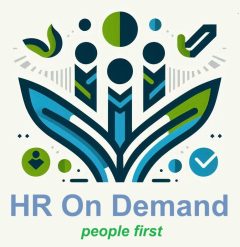Human Resources Management Assignment: A Comprehensive Guide
In the dynamic and rapidly evolving world of business, the role of human resources management (HRM) has become increasingly crucial. As organizations strive to maintain a competitive edge, effectively managing and developing their most valuable asset – their employees – has become a top priority. This article aims to provide a comprehensive overview of human resources management assignments, exploring their significance, key components, and best practices.
Understanding the Importance of Human Resources Management Assignments
Human resources management assignments serve as a critical means of evaluating and enhancing an organization’s HR practices. These assignments enable students, professionals, and HR practitioners to delve into the intricacies of HRM, applying theoretical knowledge to real-world scenarios. By engaging in these assignments, individuals can develop a deeper understanding of the challenges and best practices associated with managing an organization’s human capital.
Key Components of a Human Resources Management Assignment
Typically, a human resources management assignment may encompass a wide range of topics, including but not limited to:
1. Recruitment and Selection: Assignments in this area may focus on developing effective job descriptions, designing robust hiring processes, and evaluating candidate assessment techniques.
2. Employee Training and Development: Assignments in this domain may explore strategies for enhancing employee skills, implementing training programs, and fostering professional growth within the organization.
3. Performance Management: Assignments in this area may delve into the design and implementation of performance evaluation systems, providing insights into effective feedback mechanisms and employee goal-setting.
4. Compensation and Benefits: Assignments in this realm may examine the development of competitive compensation packages, the administration of employee benefits, and the alignment of rewards with organizational objectives.
5. Employee Relations and Compliance: Assignments in this domain may explore the management of employee grievances, the implementation of disciplinary procedures, and the adherence to labor laws and regulations.
6. Strategic Human Resources Management: Assignments in this area may focus on the integration of HRM strategies with the overall business goals, emphasizing the role of HR in driving organizational success.
Effective Approaches to Human Resources Management Assignments
To excel in human resources management assignments, students and professionals can adopt the following best practices:
1. Thorough Research and Analysis: Successful completion of HR management assignments requires a deep understanding of the subject matter. Engaging in comprehensive research, reviewing academic literature, and analyzing case studies can provide valuable insights and a solid foundation for the assignment.
2. Practical Application: Assignments in human resources management often call for the application of theoretical concepts to real-world scenarios. Incorporating relevant examples, case studies, and industry-specific data can enhance the relevance and depth of the assignment.
3. Critical Thinking and Problem-Solving: Effective HR management assignments demand critical thinking and problem-solving skills. Identifying key issues, evaluating alternative solutions, and proposing well-reasoned recommendations can demonstrate a strong grasp of the subject matter.
4. Attention to Ethical Considerations: Human resources management assignments should address the ethical implications of HR practices, ensuring compliance with relevant laws and regulations while upholding the principles of fairness, diversity, and employee well-being.
5. Effective Communication: Clear and concise communication is essential in human resources management assignments. Presenting findings, recommendations, and supporting evidence in a structured and coherent manner can significantly enhance the quality and impact of the assignment.
Leveraging Resources for Human Resources Management Assignments
To excel in human resources management assignments, students and professionals can leverage a variety of resources, including:
1. Academic Journals and Databases: Accessing reputable academic journals and databases can provide a wealth of research-based insights and best practices in the field of human resources management.
2. Industry Reports and Case Studies: Reviewing industry reports, case studies, and white papers can offer real-world perspectives and practical applications of HRM strategies.
3. Professional Associations and Networking: Engaging with professional HR associations and networks can facilitate access to subject matter experts, mentors, and relevant industry information.
4. Collaboration and Peer Learning: Collaborating with peers, participating in study groups, or seeking guidance from instructors can foster a deeper understanding of human resources management concepts and assignments.
5. Practical Experience and Internships: Gaining practical experience through internships or HR-related roles can provide valuable context and opportunities to apply classroom learning to real-world scenarios.
By leveraging these resources and adopting effective approaches, students and professionals can navigate human resources management assignments with confidence and deliver high-quality, impactful work.
Human Resources Management Assignment: A Transformative Journey
In conclusion, human resources management assignments are invaluable tools for developing a comprehensive understanding of the complexities and best practices associated with managing an organization’s most valuable asset – its people. By engaging in these assignments, individuals can cultivate essential skills, deepen their knowledge, and contribute to the ongoing evolution of human resources management practices. Whether you are a student aspiring to enter the field or a seasoned HR professional seeking to enhance your expertise, embracing the challenges and opportunities presented by human resources management assignments can be a transformative journey, empowering you to drive organizational success and positively impact the lives of employees.





